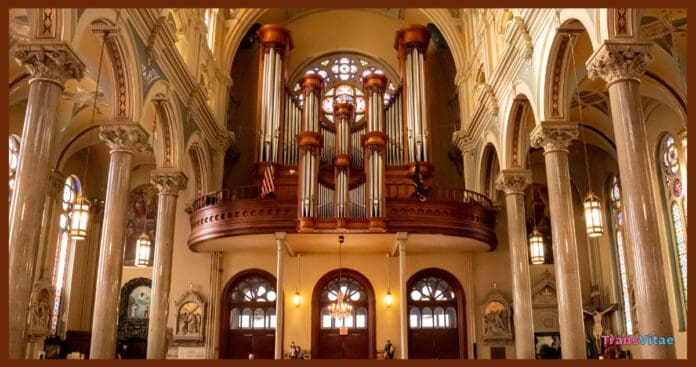DETROIT MI In a significant move that has sparked conversation and controversy, Archbishop Allen Vigneron of Detroit has issued a comprehensive pastoral letter to the Catholic community in metro Detroit, addressing what he terms as “gender confusion.” This development comes amidst a broader national dialogue on transgender rights and identities. The Archbishop’s letter, encompassing some 5,000 words, was disseminated across six counties in southeastern Michigan, targeting Catholic leaders and setting forth a stance that critiques the growing acceptance of transgender identity.
The Archbishop’s choice of language in the letter is particularly noteworthy. He deliberately avoids the term “transgender,” opting instead for “individuals experiencing gender confusion” to describe those whose gender identity differs from the sex they were assigned at birth. This linguistic choice underscores the tone and approach of the Archdiocese of Detroit under Vigneron’s leadership towards the complex issue of gender identity.
Vigneron’s pastoral letter is more than a mere communication; it is a philosophical, theological, and sexual discourse that aims to shape the understanding and policies of the Catholic community in the region. Accompanying the letter, Vigneron also released a detailed 2,000-word FAQ document, elucidating new policies set to impact Catholics in metro Detroit, particularly affecting schools and youth-related programs within the Church.
Scheduled to take effect on August 1, these policies introduce significant changes to the operational norms of Catholic institutions in the area. They will influence a wide array of activities and settings within the Church, including educational programs, youth conferences, athletic events, and the use of facilities such as restrooms. One of the most controversial aspects of these policies is the approach to gender identity, specifically the prohibition on recognizing individuals by a gender different from their biological sex at birth.
Vigneron’s directives extend to various aspects of Church and school life, including dress codes, bathroom usage, and the language used in documents and records. “By virtue of each person’s creation in the image and likeness of God as male or female … all ministers of the Church in the Archdiocese of Detroit (clergy, employees, and volunteers), students, and registered youth program participants shall respect their God-given biological sex,” Vigneron stated. This includes adherence to traditional gender roles and identities in terms of pronoun usage, dress codes, and the use of facilities.
While the policies do not outright exclude transgender individuals from participating in Church activities, they mandate strict adherence to gender identities as assigned at birth, a stance that is likely to fuel further debate both within and outside the Catholic community.
The Archbishop’s letter and the ensuing policies reflect a broader struggle within various religious and societal institutions to grapple with the complexities of gender identity. As such, Vigneron’s stance is not just a local or denominational issue but is indicative of a wider cultural and ethical debate on the nature of identity, inclusion, and acceptance.
Critics of the Archbishop’s approach argue that it represents a step backward in the fight for LGBTQ+ rights and acceptance, potentially alienating individuals struggling with their gender identity. Supporters, however, may view it as a defense of traditional values and religious teachings on gender and sexuality.
As these policies are set to be implemented, the Archdiocese of Detroit finds itself at the intersection of faith, identity, and modern societal values. The implications of Archbishop Vigneron’s letter extend far beyond the administrative; they touch on the very core of how gender, identity, and acceptance are understood and navigated within one of the region’s largest faith communities.
The discussion that Vigneron’s pastoral letter sparked is a microcosm of a larger social debate, highlighting the ongoing difficulty of integrating conventional religious teachings with modern conceptions of gender and identity. Both supporters and detractors will be closely monitoring how this discussion develops because it could set precedents for how religious institutions handle these difficult issues in the future.


